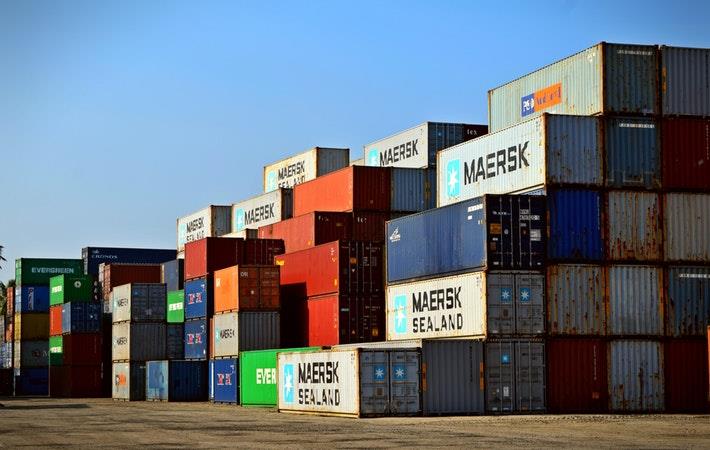Interviews
Trade wars symptom of deeper economic malaise: UNCTAD
27 Sep '18
3 min read

Courtesy: Pexels
The world economy is on shaky ground a decade after the 2008 financial crisis, with trade wars a symptom of a deeper malaise, says a report by the Geneva-based United Nations Conference on Trade and Development (UNCTAD). While the global economy has picked up since early 2017, growth remains spasmodic and many countries are operating below potential, says the report.
This year is unlikely to see a change of gear, says the document titled ‘Trade and Development Report 2018: Power, Platforms and the Free Trade Delusion’.
“The world economy is again under stress,” an UNCTAD press release quoted secretary general of the organisation Mukhisa Kituyi as saying.
“The immediate pressures are building around escalating tariffs and volatile financial flows but behind these threats to global stability is a wider failure – since 2008 – to address the inequities and imbalances of our hyperglobalized world,” Kituyi said.
The annual report analyses current economic trends and major international policy issues and makes suggestions for addressing them.
The 2018 report examines how economic power is being concentrated in a smaller number of big international firms and the impact this is having on the ability of developing countries to benefit from their participation in the international trading system and to gain from new digital technologies.
Many advanced nations have since 2008 abandoned domestic sources of growth for external ones, most noticeably with the turnaround of the Eurozone from a deficit to a surplus region, the report states.
But this can only work by tapping into other countries’ domestic demand—and among countries that do depend on domestic demand, too many are relying on a combination of higher debt and asset bubbles rather than boosting wages. In either case, growth is hindered by the ever-present threat of financial instability, according to the UN body.
The bigger emerging economies are doing better this year and commodity exporters can expect an improvement while prices remain firm. Except for the Russian Federation, growth in the other four BRICS countries—Brazil, India, China and South Africa—relies heavily on domestic demand.
However, with downside risks rising and financial fault lines widening in several countries, the report sees economic storm clouds gathering.
Today’s $250 trillion debt stock—50 per cent higher than at the time of the crisis—is three times the size of the global economy. Private debt, particularly corporate debt, has been behind this surge in borrowing but without stimulating business investment—a disconnect that spells trouble ahead, the report says.
The report documents a general decline—with China an exception—in the share of value added from manufacturing activities in these chains and a rise in the share of pre- and post-production activities.
However, the consequences of any serious escalation in trade wars could, through heightened uncertainty and reduced investment, bring more damaging consequences in the medium term, the report says.
These could be particularly serious for countries already facing financial distress, the report adds. (DS)
This year is unlikely to see a change of gear, says the document titled ‘Trade and Development Report 2018: Power, Platforms and the Free Trade Delusion’.
“The world economy is again under stress,” an UNCTAD press release quoted secretary general of the organisation Mukhisa Kituyi as saying.
“The immediate pressures are building around escalating tariffs and volatile financial flows but behind these threats to global stability is a wider failure – since 2008 – to address the inequities and imbalances of our hyperglobalized world,” Kituyi said.
The annual report analyses current economic trends and major international policy issues and makes suggestions for addressing them.
The 2018 report examines how economic power is being concentrated in a smaller number of big international firms and the impact this is having on the ability of developing countries to benefit from their participation in the international trading system and to gain from new digital technologies.
Many advanced nations have since 2008 abandoned domestic sources of growth for external ones, most noticeably with the turnaround of the Eurozone from a deficit to a surplus region, the report states.
But this can only work by tapping into other countries’ domestic demand—and among countries that do depend on domestic demand, too many are relying on a combination of higher debt and asset bubbles rather than boosting wages. In either case, growth is hindered by the ever-present threat of financial instability, according to the UN body.
The bigger emerging economies are doing better this year and commodity exporters can expect an improvement while prices remain firm. Except for the Russian Federation, growth in the other four BRICS countries—Brazil, India, China and South Africa—relies heavily on domestic demand.
However, with downside risks rising and financial fault lines widening in several countries, the report sees economic storm clouds gathering.
Today’s $250 trillion debt stock—50 per cent higher than at the time of the crisis—is three times the size of the global economy. Private debt, particularly corporate debt, has been behind this surge in borrowing but without stimulating business investment—a disconnect that spells trouble ahead, the report says.
The report documents a general decline—with China an exception—in the share of value added from manufacturing activities in these chains and a rise in the share of pre- and post-production activities.
However, the consequences of any serious escalation in trade wars could, through heightened uncertainty and reduced investment, bring more damaging consequences in the medium term, the report says.
These could be particularly serious for countries already facing financial distress, the report adds. (DS)
Fibre2Fashion News Desk – India
Popular News
Leave your Comments
Editor’s Pick
































-Ltd..jpg?tr=w-120,h-60,c-at_max,cm-pad_resize,bg-ffffff)





.jpg?tr=w-120,h-60,c-at_max,cm-pad_resize,bg-ffffff)
.jpg?tr=w-120,h-60,c-at_max,cm-pad_resize,bg-ffffff)






